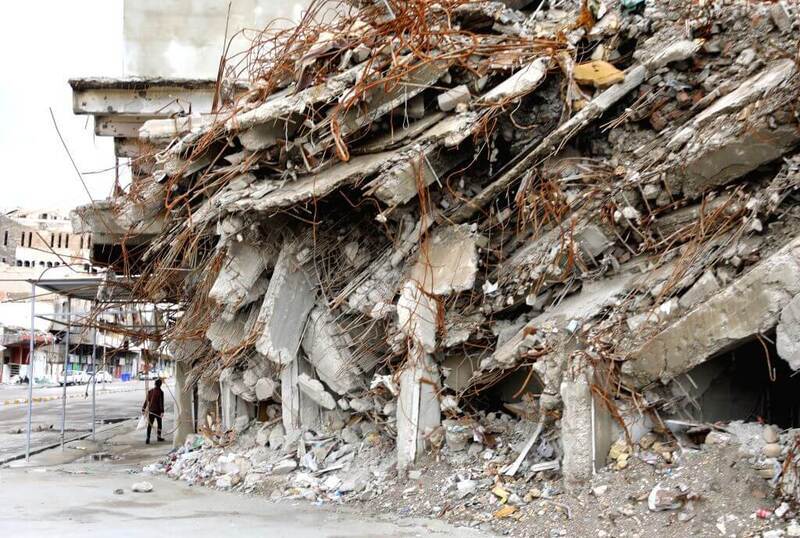
Andersen: 2024 is on track to be warmest on record..Financing must up at least 3.5 times
2024 is on track to surpass 2023 as the warmest on record and climate change ...

The United Nations Environment Program (UNEP) teamed up with the International Organization for Migration (IOM) to establish the first debris recycling center in Iraq’s Mosul.
The center will be set up in collaboration with the Mosul Municipality and Japan.
The center will help Iraq’s second largest city of Mosul get rid of an estimated 7-8 million tons of debris left over by massive devastation during the conflict with the Daesh terrorist group in Iraq and the Levant (ISIL).
In the conflict’s immediate aftermath, clean-up campaigns cleared hundreds of thousands of tons of debris blocking streets to allow residents access to their homes and businesses, and enable rehabilitation of critical infrastructure such as hospitals, schools and water treatment plants.
The cleared debris, however, was often dumped in an uncontrolled manner in open spaces, gullies and strewn along roadsides for lack of designated disposal sites, creating problems in this city where land is a premium.
Furthermore, much of the debris remains locked in damaged buildings which will require complex explosive hazard clearance and demolition and will take many years to release.
“By processing the rubble to produce quality materials that can be used in reconstruction efforts, creating much needed job opportunities for returnees and cleaning-up the urban environment, this initiative practically illustrates how humanitarian needs and sustainable development goals can be addressed in a joint manner,” said Dr. Jassim Humadi, Iraq’s Deputy Environment Minister. “We are very grateful to the Government of Japan for their support in helping turn the debris problem in Mosul into a means of positive change.”
The project builds upon lessons learned and best practices gathered under debris recycling pilots implemented jointly by IOM and UNEP in Mosul and Kirkuk. Where conventional practice had been to clear and dump the debris, this new initiative will concentrate on reusing the recycled aggregate for reconstruction.
“Material testing results confirming that the recycled aggregate complies with Iraq’s standards for road construction should also help pave the way for embedding circular economy principles in dealing with routine construction and demolition waste, thereby promoting a ‘building back better’ approach to crisis recovery,” said Gary Lewis, Director of UNEP’s Disasters and Conflicts Branch.
“Japan has provided over $ 500 million as humanitarian assistance to the people affected by the crisis since 2014. Additionally, Japan decided this year to provide a new assistance package to Iraq, amounting to $ 50 million, including this project by UNEP,” said Japan’s Ambassador to Iraq Kotaro Suzuki.
“I commend UNEP’s initiative together with IOM on recycling debris which cleans up the urban environment and produces materials for road construction as well as creating job opportunities for unemployed youth.”
“In Japan, after the earthquakes, people mourned their loss and started to clean up the debris which was all that was left of their homes and memories of loved ones. Our fathers’ generation did the same in scorched cities after the war, to rebuild towns for their people, for their future children,” he added.
“We want to assist people in Mosul and Kirkuk in their efforts to revive their towns, rebuild their lives once again.”
2024 is on track to surpass 2023 as the warmest on record and climate change ...
The annual collective climate financing contributions from the group of multilateral development banks (MDBs) is ...
Sweden pledges additional $19 million to the Loss and Damage Fund at the 29th United ...


اترك تعليقا